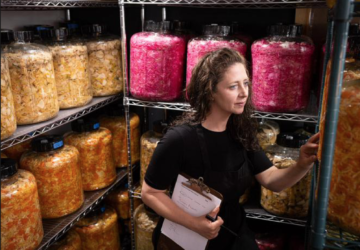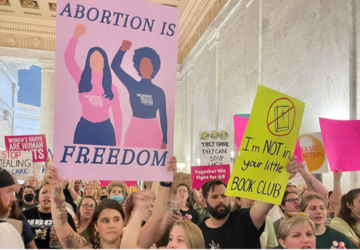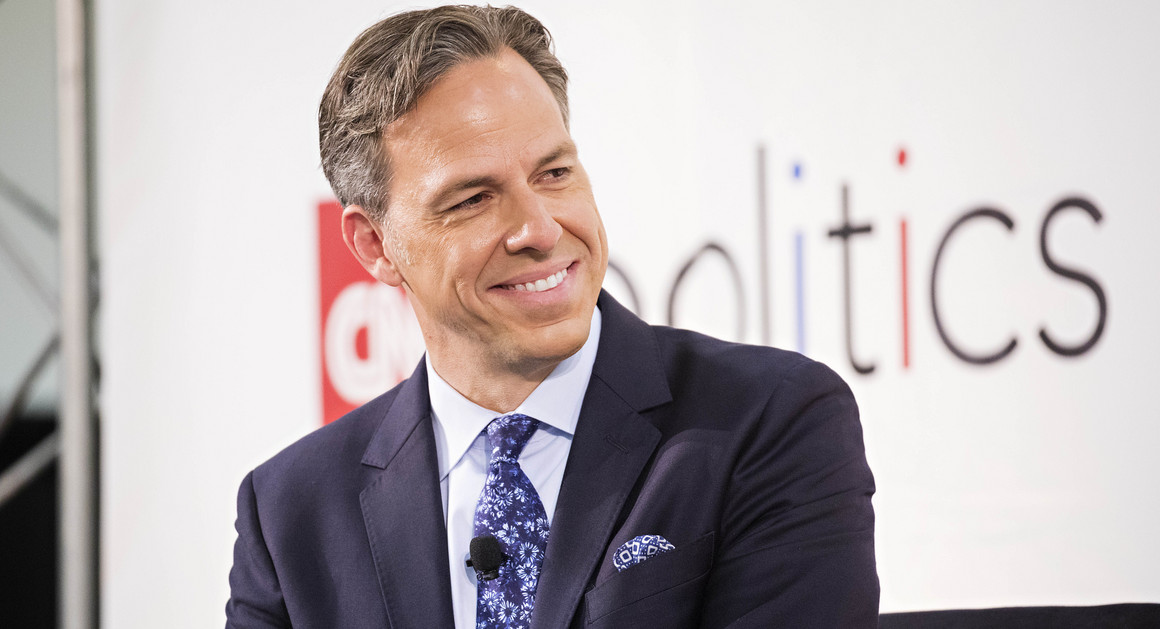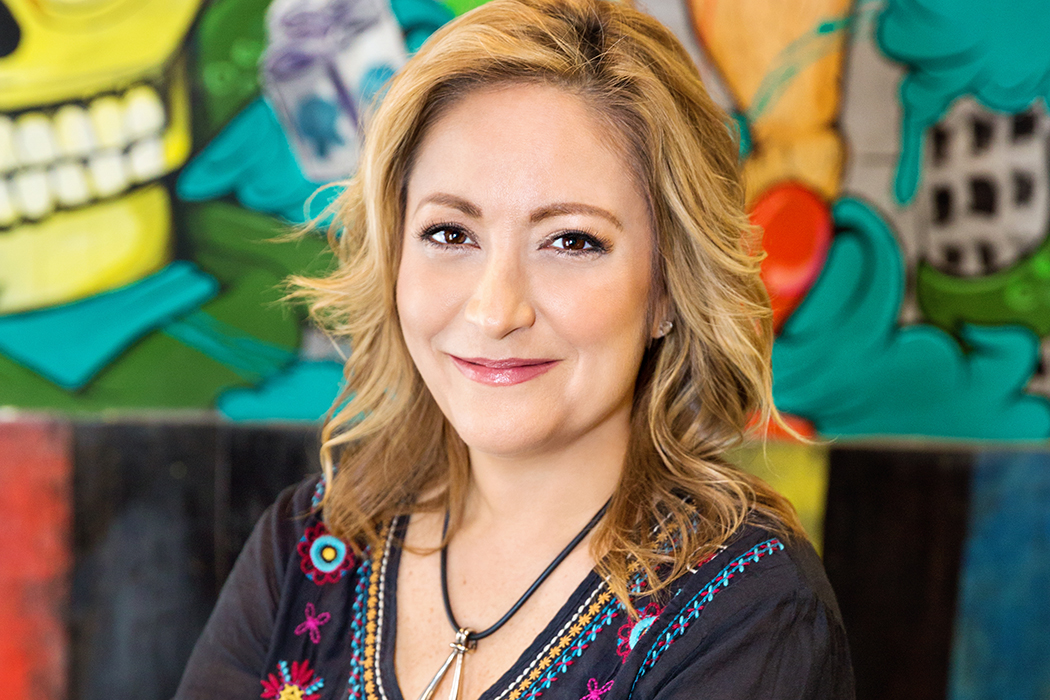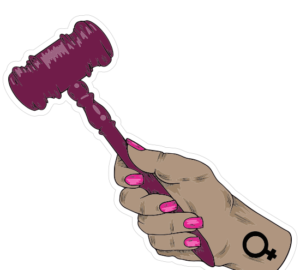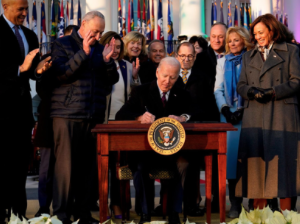Female Astronauts, Jake Tapper Admirably Commending Female Coworker, Battle For Women in STEM, Hayden Brown, Taraji P. Henson Fights for Mental Health & Bianca Padilla Ensures Elders’ Healthcare
Out of this World Feminism
By Natasha Gilman
While the journey has not been easy or quick, over the past couple years female astronauts have taken important strides for gender equality within American space studies. Peggy Whitson, a biochemist engineer and NASA astronaut, started her second trip to the space station, and soon after became the first woman to ever command the space station. In 2012, Sunita Williams, also a NASA astronaut, commanded the space station with Whitson and later alone in 2017. These two influential female leaders are the only women to ever command the International Space Station (I.S.S.), demonstrating the lack of female representation within astronomical studies.
According to recent statistics, approximately 90 percent of space travellers are men. Furthermore, the record number of women in space simultaneously is four; meanwhile, there have been many all male trips into space.
In 2019, NASA astronauts Anne McClain and Christina Koch were scheduled to partake in the first all women space walk. Soon after, NASA expressed that they did not have enough spacesuits to fit both of the women, as NASA’s spacesuits were generally made in larger sizes to fit male astronauts. This limitation proves extremely detrimental to female representation on missions and in commandership. Until 2019 with two exceptions, every woman who has ever travelled to the space station was accompanied by an all-male crew.
Despite NASA’s attempts to increase equal gender representation in the American Astronaut Corps, an all female space station crew is unfortunately an incredibly distant aspiration.
Jake Tapper Publicly Complimented His Female Co-Worker – Something All Men Should Do
By Zac Cornell
An important story that understandably didn’t get a lot of attention in the aftermath of the 2020 election was a seemingly small act on the part of CNN anchor Jake Tapper. After his colleague Arlette Saenz, a political correspondent who was working the Biden campaign trail completed her live report and they ended her segment, Tapper asked producers to bring her back onto his show where he publicly thanked her and complimented her on her wonderful job over the course of two years covering the Biden campaign.
When Saenz came back on the show, Tapper said, “You’ve done a great job covering this campaign. You really have.” He continued, “You’ve worked really hard, you’ve been on the road for two years, so congratulations on all the hard work. You’ve really done a wonderful job covering the Biden campaign for CNN.”
Many people on Twitter remarked on how nice this was of Tapper to do. Saenz herself commented on Twitter, “I first met the great @jaketapper when I was a young desk assistant answering phones and making copies at ABC News. 13 years later, this moment meant the world to me!”
The HuffPost wrote about this extraordinary on-air interaction noting that “It was a succinct but thoughtful way to give credit beyond a throwaway ‘thank you for doing your job.’” But of course the more important aspect that the HuffPost also addressed is how impactful a white male giving public credit to a female for a great job could have on that woman’s career which could help the woman gain a promotion and raise.
HuffPost writer Monica Torres wrote, “Of course, giving credit to your colleagues should not be radical, but it can be a powerful boost to women’s careers ― particularly if the person giving credit is a white man. Decades of research have found that the work of women on teams is too often overlooked in meetings and collaborations, and women face a penalty for sharing their ideas.”
Making a big deal about this interaction is important and newsworthy because it is not done very often. And in order to make gender equality a reality in business and other areas, it is important for men to publicly acknowledge great work done by women in order to make sure it is recognized, hopefully leading to proper compensation in the form of title and raise.
There are numerous articles and studies analyzing gender inequality and why it persists. And while there are also some policies put in place to try and effect change, like California’s Women on Boards (Senate Bill 826) making it mandatory to have at least one woman on corporate boards and banks like Goldman Sachs committing money to help fund female start-ups, Tapper’s behavior is a simple, easy way that people in many different industries and circumstances can employ which could help change mindsets and effect change. We hope more men adopt this habit and it no longer becomes newsworthy.
The Battle For Women in Stem
By Brett Moriarty
Sadly, women working and learning in the science, technology, engineering, and mathematics (STEM) fields have faced gender discrimination for a long time across the world.
Although the population of women pursuing studies in STEM continues to increase, they remain a considerable minority of the overall student body pursuing these majors. In a 2015 study, 601,658 bachelor’s degrees were awarded in an engineering major at 50 colleges across the country, but only 19.9% of those degrees were awarded to women. At the same colleges, enrollment in these departments was 78.6% male and 21.4% female, with a rough ratio of 8 to 2. Furthermore, many women have gone on record to say that this ratio is uncomfortable and intimidating while in class.
Women are not only discouraged by the statistics themselves, but also in personal experiences throughout their studies and careers in STEM occupations. Nyna Pendkar, a junior engineering student who talked to the UMass Lowell Connector, recounts how her advisor once asked her if she was only majoring in engineering to meet a husband. Another female student from the dame newspaper article describes how she feels unseen in STEM fields. She recalls how she made an observation yet was ignored. A male student made the same remark a few minutes later and received much more praise.
The stereotype that women are too emotional to make important decisions and lead their own lives goes back hundreds, if not thousands of years, and has created a large block for women interested in STEM. Kavitha Chandra, the associate dean for undergraduate affairs in engineering at UMass Lowell says how “You don’t want to be looked down upon because you’re having a hard time.” Especially in STEM related work, women often silence themselves when they should speak up about any discrimination or complaints because they are scared to be seen as weak. Because of this environment, Chandra says how “They are afraid of making a scene; they feel that this will draw them out and expose them. And they are afraid they are going to be questioned and doubted.”
Despite these barriers, women have been conducting important STEM work for many years without public knowledge. In fact, six young women programmed the first all-electronic programmable computer in a secret project during World War Two. When the project was introduced to the public in 1946, the women were never credited for their hard work. Now, the ENIAC Programmers Project works hard to preserve and share the stories of these six women. Although they were never given proper recognition during their lifetime, these women were brilliant and made a groundbreaking discovery.
Although women have not appeared to be influential, they have in fact been behind the scenes for a very long time. As a society, we have progressed heaps and bounds, but there is still work left to be done. There are still prevalent gender issues that arise within workspaces, and it is up to the new generation to change the sexist STEM working environment. If you are interested in any of the STEM fields, do not let society tell you no!
How Female CEO Hayden Brown Helped Her Company Thrive in a Pandemic
By Kate Burdick
As the CEO of Upwork, a freelancing platform that connects individuals and enterprises, Hayden Brown has encountered her fair share of challenges. However, of all the challenges she has faced, the global pandemic has proven to be the most difficult. Just over two months into her job as CEO of the company, her entire company, like many others during this trying time, was forced to go virtual. This setting change made goals, like completing a listening tour for the whole company and creating a report on the state of the business within her first 100 days, quite difficult. Despite these difficulties, Brown has managed to keep her company not only afloat, but thriving amidst the pandemic, edging out similar freelancing companies. Now, Upwork is the world’s largest public online freelance marketplace, and is helping provide job listings remotely.
Currently, more than five million companies use Upwork as a way to post freelancer job listings. Brown believes this success is as a result of the pandemic, explaining that “people have shifted not just their notions about remote work in this moment of crisis, but also their long term views of how remote work will fit into their organizations.” Although other companies are capitalizing on the upward trend the pandemic has created, Upwork has made steps to differentiate themselves from competition. Now, companies turn to Upwork to solve their diversity issues, an issue put under the spotlight these past few months. Brown acknowledges this concern: “We have to let go of this very office-centric culture and incorporate people who are in a lot of geographies”.
Brown, who graduated from Princeton in 2004 with a politics degree, has successfully grown her company during a time that has stifled the development of many other businesses.
Actress Taraji P. Henson Fights for Mental Health in Black Communities
By Francesca Ricciarini
Award winning actress Taraji P. Henson is fighting to improve mental health in African American communities across America.
In an attempt to help these communities, Henson founded a nonprofit organization named the Boris Lawrence Henson Foundation. Starting this project was not a random idea for Henson as she too has struggled with mental health issues in her life. Henson told the Congressional Black Caucus task force on Black youth suicide and mental health, “if you’re a human living in today’s world, I don’t know how you’re not suffering in any way.”
Hensons goal through her organization is to erase the negative stigmas associated with mental health. The famous actress emphasized the importance of being able to say “I’m human and right now I’m hurt, I’m afraid, or I can’t .”
When the pandemic hit America, the organization went from raising awareness about mental health to actually facilitating it. TheBoris Lawrence Henson Foundation team started by offering 5 cost-free therapy sessions to those in need. So far, the foundation has provided more than 600 people with over 3,000 therapy sessions.
Bianca Padilla Ensures Healthcare for Elders through Carewell
By Grace Curnin-Shane
With the Coronavirus sweeping America, federal healthcare policies have become a growing concern across the nation. Americans, particularly the elderly, are requiring care and assistance on larger scales. According to a 2020 report by the National Alliance for Caregiving and AARP, more than 1 in 5 Americans are caregivers for family members or citizens in their community. Many of these people who spend their time providing for others in need, however, have been let down by the systems that are currently in place.
Bianca Padilla discovered the discrepancies between what healthcare for the elderly should be and what it really is while providing care for her elderly grandmother. Through her experiences Padilla, alongside her husband, brainstormed the idea for a business named Carewell to provide caregivers with the support they deserve. “Carewell, which raised $5 million in seed funding this year, streamlines the care process through educating the 53 million caregivers nationwide while providing them with the right tools and products needed to provide adequate care,” wrote Forbes contributor Monica Haider in a recent Forbes article on the business.
Facing a pandemic, Padilla explained that her company’s work is more important than ever, and could even reduce hospitalizations. The Carewell site is stocked with supplies for lots of different circumstances, ready to be shipped. “We were unable to find the guidance and selection of tools we needed all in one place. […] We formed Carewell to be a source of support for those seeking proactive service, compelling content and expert products, ” said Padilla.
Beatríz Acevedo Launches Personal Finance Platform for Latinos
By Alexa Bournazos
Beatríz Acevedo, founder of a Latino youth media company called Mitú, recently launched a personal finance platform called Suma Wealth Inc. Through this platform, Acevedo is helping the Latino youth learn about a variety of personal finance techniques that are not incorporated into their public school education curriculum.
Since its initial launch, Suma Wealth Inc has earned over one million dollars in investments, primarily from other Latino women, making Acevedo not only an inspirational Latina entrepreneur and CEO, but also a successful one. Using her platform and resources to help other latinos succeed, Beatríz is an exemplary role model to young girls around the world.


